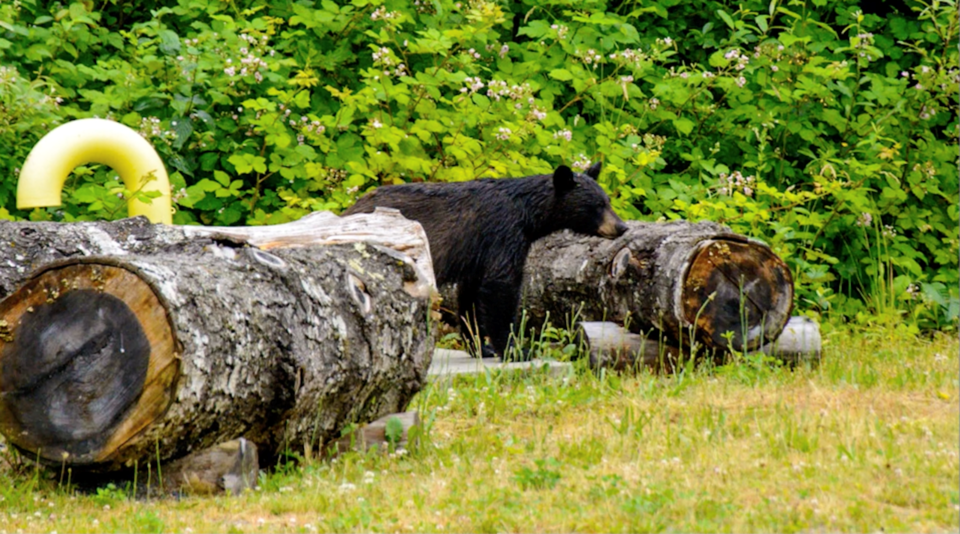On his way to catch the No. 5 bus to the Sea to Sky Gondola on July 4, Squamish's Cliff Jennings spotted this young black bear.
"I saw this young bear come out of the woods and heading across to the Adventure Centre for info about where the berries were ripe," Jennings joked.
Bears are most active in our region from March to December.
Wildlife experts warn to keep a distance from black bears.
Squamish was recently listed as one of the top 10 deadliest communities for black bears, with 59 killed from 2015 to 2021, usually as a result of human behaviour that led the bear to be habituated.
The District of Squamish notes the follow things you can do to keep local black bears safe in our community:
• Always use both locks to secure residential garbage and organic totes at all times.
• Place totes curbside between 5 a.m. and 7 p.m. only on collection day and never the night before.
• Reduce odours by freezing smelly food waste in a paper bag and dispose of the bag on collection day.
• Rinse out all recycling material to eliminate food residue & reduce odours.
• Ensure chicken coops & beehives are surrounded by a well-maintained electric fence.
• It's best not to use birdfeeders during bear season (March-December). If you do use feeders, ensure they are at least 10 feet off the ground and at least 10 feet away from trees or climbable structures. Ensure seeds are not accumulating on the ground underneath the feeder by using a catch tray.
• Pick fruit as it ripens and don’t let it collect on the ground.
• Maintain an odourless compost by liming, turning frequently, cutting food into small pieces, layering greens with browns and never add meat, fish, fats or oils. Always cover food with lawn clippings and browns.
• Consider an indoor worm composter.
• Feed pets indoors and keep all bowls indoors.
• Keep barbecues clean and grease-free by burning an extra 5 minutes after removing food and remove or clean barbecue tools.
• Move fridges and freezers indoors or lock them.
• Talk to your neighbours about managing their attractants.
Local photographers can look to WildSafeBC's guidelines for ethical wildlife photography that should be adhered to.
Here are some more black bear facts to check out.
The Squamish Chief published this video after the bear was no longer where he was photographed.
All bears that are aggressive in nature, or sightings in urban areas, should be reported to the Conservation Officer Service (1-877-952-7277).



